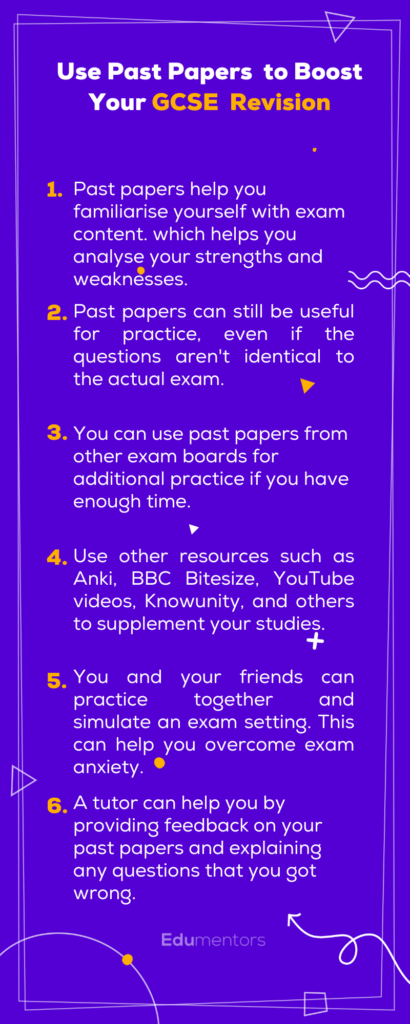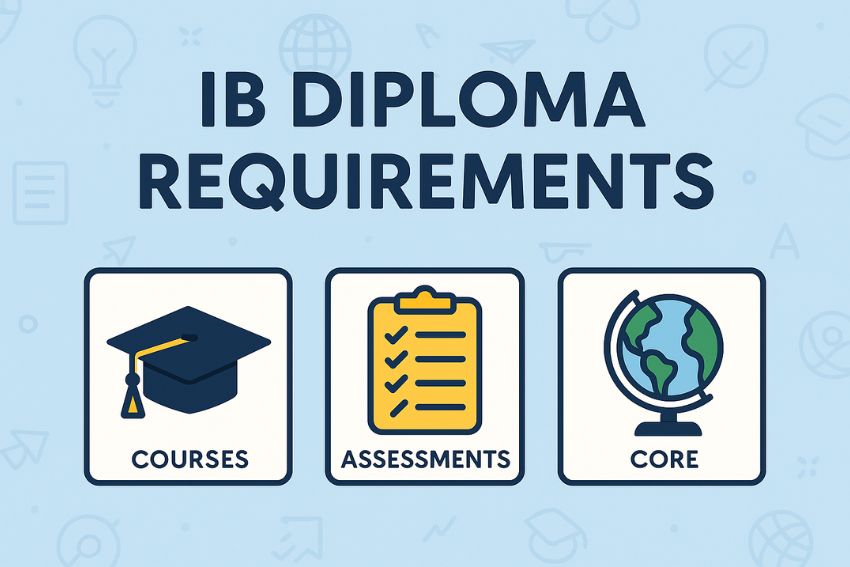AQA
Pearson Edexcel
For students following the Edexcel syllabus, here’s a list of GCSE Statistics Edexcel past papers. These resources are ideal if you want to strengthen your exam technique and improve your marks.
- Edexcel GCSE Statistics Past Papers
- Mark Schemes for Edexcel Statistics GCSE

FAQs:
What is GCSE Statistics?
GCSE Statistics is a subject offered at the GCSE level in the United Kingdom and in some other countries following a similar educational system. It provides students with a comprehensive introduction to statistical concepts, methods, and techniques.
In GCSE Statistics, students learn about various statistical concepts such as data collection, data representation, data analysis, and probability. This includes understanding different types of data, knowing how to collect and analyse data, how to use different statistical measures (like mean, median, mode, and range), understanding probability, and knowing how to draw and interpret statistical diagrams.
The course aims to provide students with statistical skills and knowledge that can be applied in everyday life, in further study, and in the workplace. It complements subjects such as Mathematics and Sciences, and is highly valued in fields such as social sciences, health sciences, economics, and business.
What are the main topics covered in GCSE Statistics?
The main topics covered in GCSE Statistics usually include:
Data Collection
This section covers the understanding of primary and secondary data, the planning and data collection process, sampling techniques, and data cleaning.
Data Presentation and Analysis
Students learn about presenting data in various forms such as tables, charts, and graphs. They also learn about measures of central tendency (mean, median, mode), dispersion (range, interquartile range, standard deviation), and the analysis of these measures.
Probability
This section introduces the concept of probability, including the calculation of simple and combined probabilities, the use of probability trees, and understanding of mutually exclusive and independent events.
Probability Distributions
Students learn about different probability distributions, including the binomial and normal distributions, and their applications.
Hypothesis Testing and Inference
This topic covers how to make inferences from data, including understanding the concept of a hypothesis, conducting hypothesis tests, and understanding the concept of statistical significance.
Correlation and Regression
In this section, students learn how to analyse relationships between two numerical variables, including understanding scatter plots, correlation, and simple linear regression.
Time Series
This part of the course involves the analysis of data over time, including the identification of trends and seasonal variations.
Use of Technology in Statistics
Students also learn how to use statistical software or calculators to perform statistical calculations and analysis.
Please note that the exact topics may vary slightly depending on the examination board (e.g., AQA, Edexcel, OCR, etc.). Always refer to your specific syllabus to know the exact topics you’ll be tested on.
What is the difference between GCSE Mathematics and GCSE Statistics?
GCSE Mathematics and GCSE Statistics, while both deal with numbers and data, have different focuses and cover distinct content.
GCSE Mathematics is a broad subject that covers a wide range of mathematical topics including numbers, algebra, geometry, measures, and statistics. It’s focused on providing a general mathematical education that includes problem-solving, logical reasoning, and the ability to think in abstract ways. It aims to give a well-rounded mathematical understanding that can be used in various disciplines.
GCSE Statistics, on the other hand, focuses specifically on the study and application of statistics. This includes understanding how to collect and analyze data, draw conclusions from data, use probability to make predictions, and understand and apply statistical techniques such as hypothesis testing and regression analysis.
While there is some overlap between the two subjects (as statistics is a branch of mathematics), GCSE Statistics goes into more depth on statistical concepts and techniques, and it’s often taken by students who have a specific interest in these areas or are planning to study subjects at A-level or university which require a strong understanding of statistics. The study of GCSE Statistics complements and enhances the study of GCSE Mathematics but is not a substitute for it.
What skills do I need to do well in GCSE Statistics?
To do well in GCSE Statistics, you’ll need a variety of skills. Here are some key ones:
Mathematical Skills
A good grasp of basic mathematics is essential. You’ll need to be comfortable with arithmetic operations, basic algebra, and mathematical reasoning.
Statistical Skills
This includes understanding statistical concepts, data representation, measures of central tendency and dispersion, probability, hypothesis testing, etc.
Analytical Skills
You’ll need to be able to analyse data, interpret statistical findings, and draw conclusions.
Problem-solving Skills
Many statistical problems require you to apply statistical techniques to solve real-world problems.
Critical Thinking Skills
In statistics, it’s crucial to be able to evaluate data and statistical methods critically. This includes understanding the limitations of certain methods and being aware of potential biases in data.
Computational Skills
You should be comfortable using calculators and potentially statistical software to carry out calculations and analyse data.
Communication Skills
You’ll need to be able to communicate your findings clearly, both in writing and using statistical diagrams and charts.
Attention to Detail
Statistics requires precision, so it’s important to pay close attention to detail when working with data and performing calculations.
Organisational Skills
Managing data and working methodically can help you to approach statistical problems effectively.
Independent Study Skills
As with any subject, being able to study effectively on your own, practice problems, and revise material is key to doing well in GCSE Statistics.
Remember, these skills can be developed over time, and your teacher or a tutor will guide you through this process as you progress through the course.
How does GCSE Statistics relate to other subjects I might be studying?
GCSE Statistics is a versatile subject that relates to and complements many other areas of study. Here’s how:
Mathematics
Statistics is a branch of mathematics. If you’re also studying GCSE Mathematics, you’ll find overlap in topics like probability and data handling. The statistical skills you learn can also help with understanding and solving complex mathematical problems.
Sciences (Biology, Physics, Chemistry)
In these subjects, statistical methods are often used to analyze experimental data and draw conclusions. Understanding concepts such as mean, median, mode, range, standard deviation, and hypothesis testing can be very useful.
Geography
Statistics can be used to analyze and interpret geographical data, such as population data, weather patterns, and land use data.
Psychology and Sociology
In these social sciences, statistical methods are essential for conducting and interpreting research studies.
Economics and Business Studies
Statistics are frequently used in these fields to analyse economic trends, make forecasts, and inform business decisions.
Computer Science
Understanding statistics can help with areas like data science and machine learning, which involve analyzing and making predictions from large data sets.
PE Studies
Statistics can be used to analyze performance data and inform training plans.
History
Statistics can provide insight into historical trends and patterns, such as population growth or economic trends over time.
What are some good resources for GCSE Statistics revision?
There are many resources available for GCSE Statistics revision. These include:
Textbooks
Your school will likely provide you with a textbook that matches your exam board’s syllabus. These textbooks usually provide detailed explanations of concepts, examples, and practice problems.
Revision Guides
These are condensed versions of your textbook that focus on key points and concepts. They often provide summaries, diagrams, and quick quizzes to help with revision.
Online Resources
Websites like BBC Bitesize, The Student Room, Khan Academy, and others provide resources on GCSE Statistics, including interactive exercises, video lessons, and revision notes.
Past Papers
Past exam papers are an invaluable revision resource. They provide you with an opportunity to practice answering exam-style questions within the given time constraints. These can typically be found on your examination board’s website (such as AQA, Edexcel, OCR, etc.). Going through past papers allows you to familiarize yourself with the format and style of questions you’ll face in the actual exam. It’s a good idea to do these under exam conditions and then check your answers against the provided mark schemes.
Tutoring and Study Groups
A tutor can provide personalized help, while study groups can provide a platform to discuss problems and concepts with peers.
YouTube
There are many educational channels that cover GCSE Statistics content. These can provide additional explanations and example problems.
Online Practice Questions and Quizzes
There are many websites that provide interactive quizzes and practice questions. These can be useful for testing your understanding and getting immediate feedback.
Flashcards
Flashcards, either physical or digital ones (like Quizlet or Anki), can help with memorizing key concepts and terms.
Remember to start your revision early and create a study schedule to ensure you cover all the topics.
Can I take GCSE Statistics if I'm also taking GCSE Maths?
Yes, you can certainly take GCSE Statistics alongside GCSE Mathematics. In fact, these two subjects often complement each other very well. While GCSE Mathematics covers a broad range of topics including algebra, geometry, and basic statistics, GCSE Statistics dives deeper into the specific domain of statistics.
Taking both subjects can strengthen your understanding of data analysis and interpretation, probability, and statistical techniques. This could be particularly beneficial if you’re considering further studies or a career in a field that involves heavy use of statistics, such as economics, psychology, biology, business, or data science.
However, you should check with your school or educational institution to understand their specific requirements or recommendations. Some schools might suggest a particular grade in Mathematics to be eligible for GCSE Statistics, considering the mathematical skills required for the course.
What careers can GCSE Statistics lead to?
A strong foundation in statistics, like the one provided by a GCSE in Statistics, can open up a range of career options. Understanding data and being able to interpret and communicate findings is a valuable skill in many fields. Here are some careers where these skills are particularly important:
- Data Scientist/Analyst: These roles involve analyzing large datasets to draw out insights that can inform decision-making in a range of industries.
- Market Research Analyst: These professionals analyze market conditions to examine potential sales of a product or service.
- Economist: Economists study the production and distribution of resources, goods, and services by collecting and analyzing data, researching trends, and evaluating economic issues.
- Statistician: Statisticians use statistical methods to collect and analyze data and help solve real-world problems in business, engineering, healthcare, or other fields.
- Financial Analyst: Financial analysts guide businesses and individuals making investment decisions.
- Biostatistician: They apply statistics to a wide range of topics in biology.
- Researcher: In fields like psychology, sociology, and medicine, researchers design experiments and surveys, collect data, and analyze results.
- Quality Analyst: In manufacturing and other industries, these professionals monitor and improve the production process.
- Actuary: Actuaries use mathematics, statistics, and financial theory to study uncertain future events, especially those of concern to insurance and pension programs.
- Teacher/Professor: If you love statistics, you could go on to teach the subject to others!
Remember, while GCSE Statistics provides a good foundation, these career paths often require further study in the form of A-levels, degrees, or even post-graduate qualifications. However, a grounding in statistical methods and thinking could give you an advantage in these fields.
What's the difference between foundation and higher tier in GCSE Statistics?
The difference between foundation and higher tier in GCSE Statistics, as in other GCSE subjects, relates to the level of difficulty of the material covered and the potential grades that can be achieved.
Foundation Tier
This tier covers a more basic understanding of the subject. It’s designed for students who find the subject more challenging or do not require a higher grade in the subject for their future study or career paths. In GCSE Statistics, this might include basic statistical techniques and concepts. The highest grade you can achieve on the Foundation Tier is typically a Grade 5.
Higher Tier
This tier covers more complex material and is intended for students who are aiming for higher grades. It delves into more advanced statistical concepts and techniques. In GCSE Statistics, the Higher Tier will cover more advanced topics and statistical analyses. On the Higher Tier, students can achieve grades 4 through 9.
It’s important to discuss with your teacher or tutor which tier is most suitable for you, as this will depend on your individual abilities, your overall performance in the subject, and what you plan to do after your GCSEs. Your choice should take into account your confidence in the subject, your future aspirations, and advice from your teachers.








